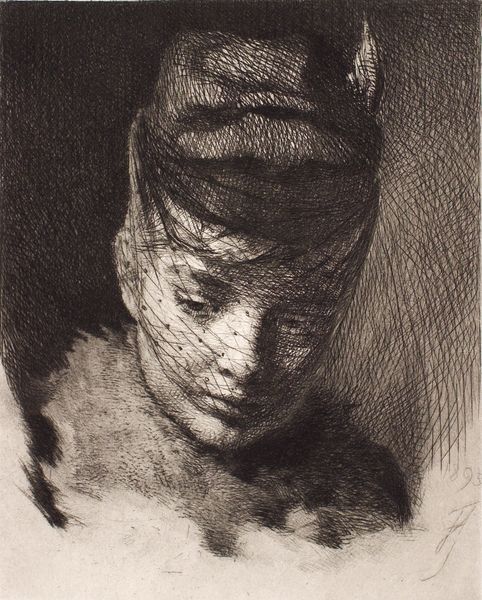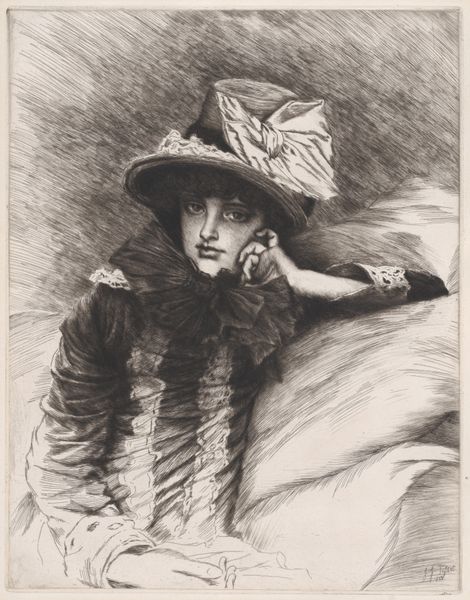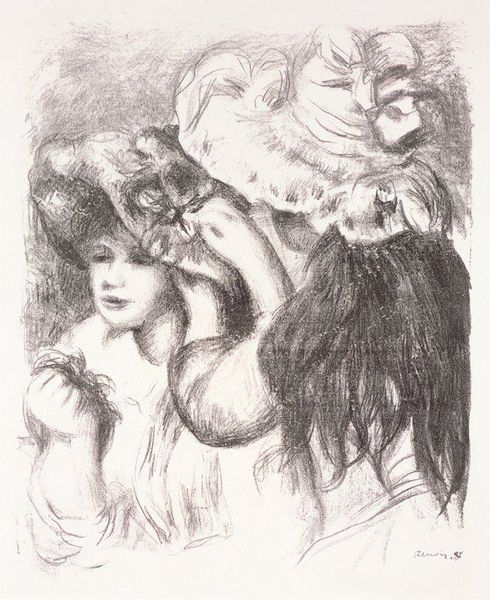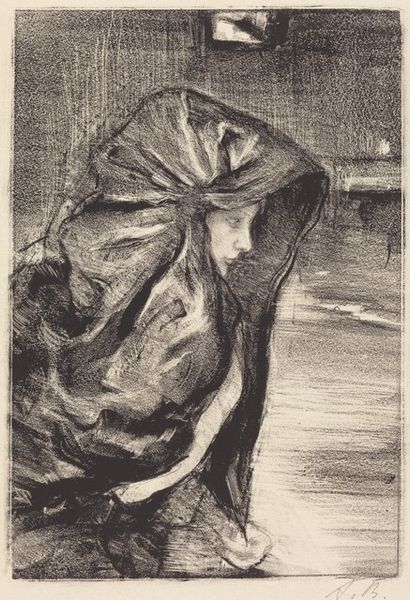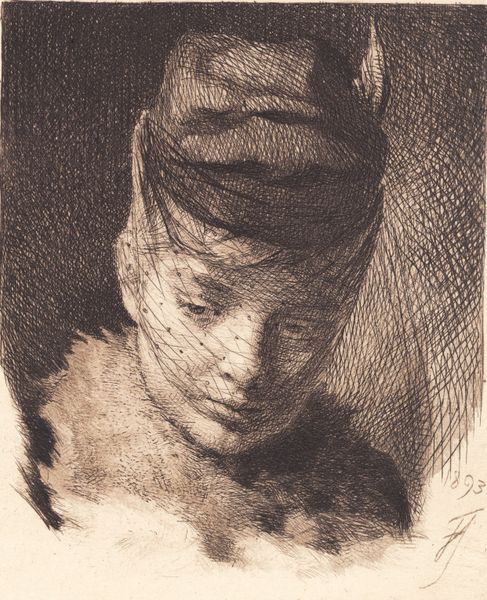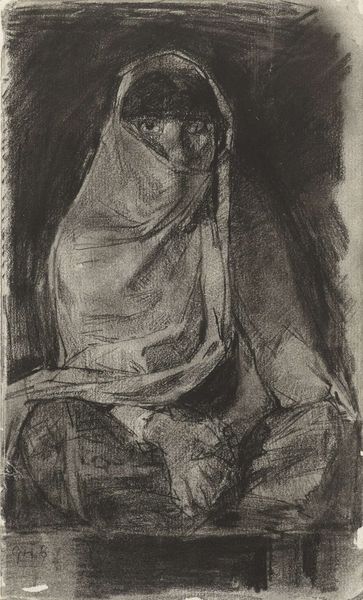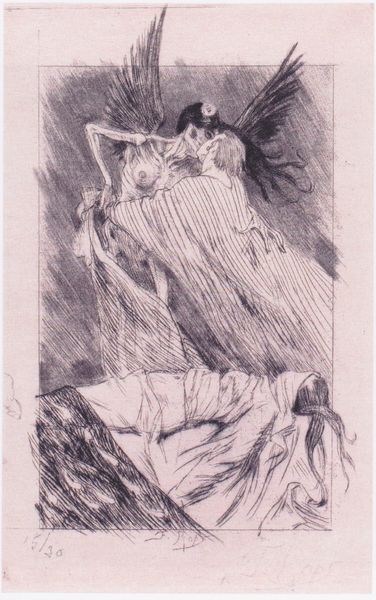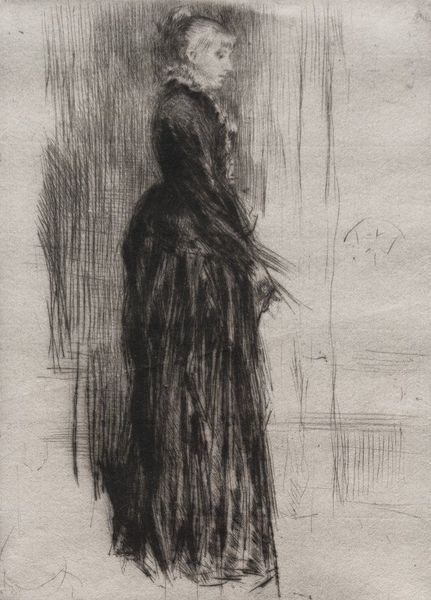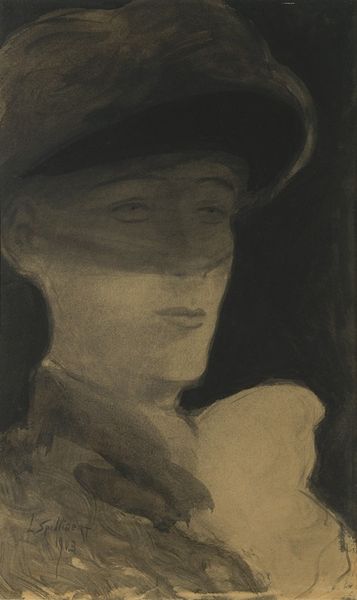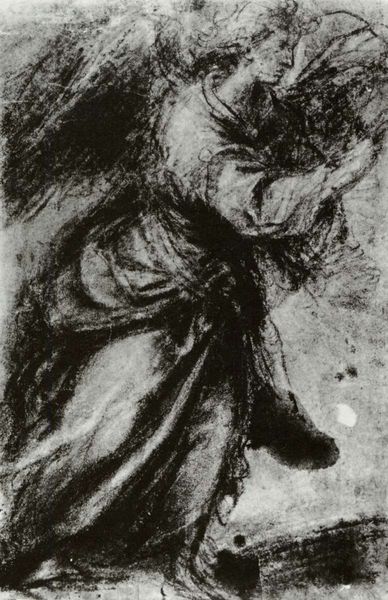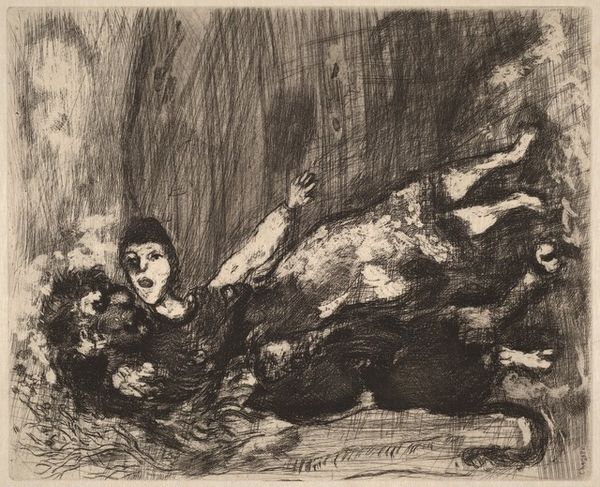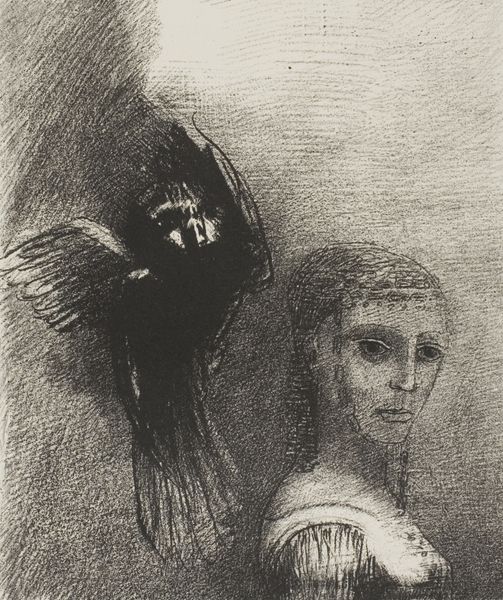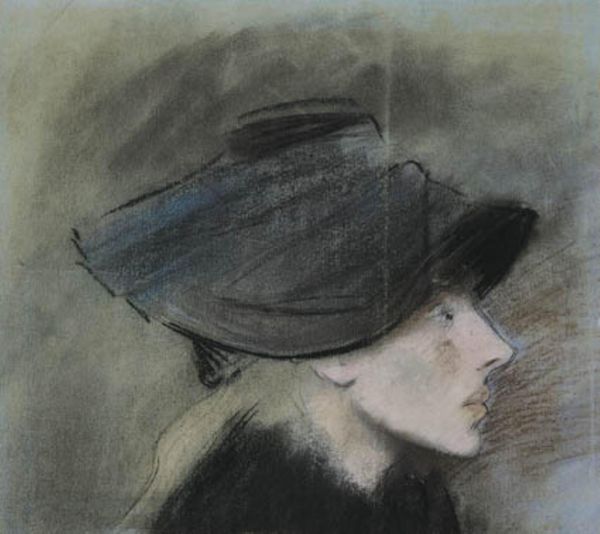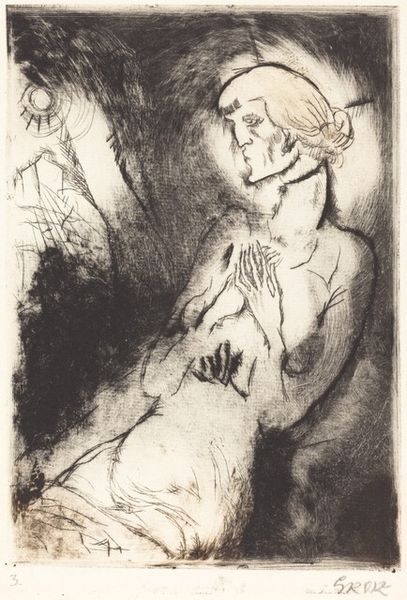
drawing, charcoal
#
portrait
#
drawing
#
pencil drawing
#
portrait drawing
#
charcoal
#
modernism
#
realism
Copyright: Public domain Japan
Curator: Yasuo Kuniyoshi's 1936 piece, "Cafe No. 2", a drawing rendered in charcoal and pencil, is before us. What’s your initial take on this one? Editor: It's melancholy. All the hazy greys and blacks—even the swirling, undefined background—it feels like a scene shrouded in introspective fog. I’m wondering what sort of unspoken narrative lies behind it. Curator: I feel that! The woman, the central figure, sits alone. Her elaborate fur and hat speak of elegance, yet she seems disconnected, almost swallowed by her surroundings and, you're right, this incredible sense of emotional haze. Editor: The fur almost takes on a life of its own, becoming this heavy, protective, or perhaps even suffocating, presence. And the hat! In iconographic terms, it hints at social identity but, here, seems more like a veil, hiding something beneath. The table too; the glass, the paper... the traditional accoutrements of society become a source of psychological separation. Curator: Do you think the ‘Cafe No. 2’ suggests a place that's second-best? Like she couldn't, or wouldn’t, be seen at 'Cafe No. 1?' There's such intentionality, or perhaps such accidental reveal, in the naming itself. Editor: Exactly! Kuniyoshi isn't just depicting a scene, he's implying a history, a series of choices and consequences. Cafes are often transitional spaces, places of temporary connection, or anonymous solitude—and the very materiality enhances this sense of loneliness; charcoal allows for nuance, and creates this intense psychological dimension by conveying fragility and transience. Curator: There's a rawness. Even her gaze avoids the viewer, adding to that feeling of being an observer to a private moment. As if she has removed herself. As if to imply: do not disturb. This could mirror his experience of the early twentieth century American art world. His work frequently depicting those that society deemed strange or other. Editor: Yes. It almost evokes a photographic negative, where shadows gain prominence. Perhaps a nod to the shadow self, that Jungian concept of the repressed aspects of our personality? The background mirrors a swirling psychodrama! Curator: I really get that. Kuniyoshi asks us to sit in that same shadow. A place that holds our own cafe memories, maybe, with a number beside them as well. Editor: I love how a simple cafe scene sketched in charcoal can hold so much weight, inviting us to acknowledge the shadowed corners of our own lives.
Comments
No comments
Be the first to comment and join the conversation on the ultimate creative platform.
